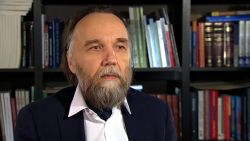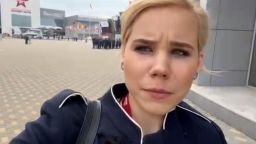Russian authorities said Sunday they had opened a murder investigation after the daughter of influential, ultra-nationalist philosopher Alexander Dugin was killed by a car bomb on the outskirts of Moscow.
The Russian Investigative Committee said it believed someone planned and ordered the car explosion that killed Darya Dugina, based on evidence already collected from the blast. “Taking into account the data already obtained, the investigation believes that the crime was pre-planned and was of an ordered nature,” the investigative committee said in a statement Sunday.
Dugina died at the scene after “an explosive device, presumably installed in the Toyota Land Cruiser, went off on a public road and the car caught fire” at around 9.00 p.m. local time on Saturday, near the village of Bolshiye Vyazemy, according to the press service of the Russian Investigative Committee, as reported by the Russian state news agency TASS.
The bomb was detonated remotely, a law enforcement official told TASS Monday. “Presumably, the car was monitored and its movement was controlled,” the unnamed official told the news agency.
Dugina’s father is a Russian author and ideologue, credited with being the architect or “spiritual guide” to Russia’s invasion of Ukraine. He is purported to have significant influence over Russian President Vladimir Putin and was described as “Putin’s Brain” by Foreign Affairs magazine.
Both Dugin and his daughter have been sanctioned by the United States. The United Kingdom sanctioned Dugina in July for being “a frequent and high-profile contributor of disinformation in relation to Ukraine and the Russian invasion of Ukraine on various online platform,” it wrote.
Videos of the explosion showed a vehicle on fire at the side of the road and smashed car parts strewn across the surrounding area. One unverified video appears to show Dugin at the scene.
A friend of Dugina told TASS that he believed Dugina’s father was the true target of the blast – or possibly both of them – as the car belonged to Alexander.
“It’s her father’s car,” Krasnov told TASS. “Dasha (Darya) drives another car, but she drove his car today, and Alexander went separately,” Andrei Krasnov, head of the Russky Gorizont (Russian Horizon) social movement and a personal acquaintance of Dugina’s family, told TASS.
Russian officials said the explosive device was attached under the car “on the driver’s side,” and 400g of TNT was used, according to TASS.
A Russian foreign ministry official implied that Ukrainian state structures were responsible for the explosion, a claim that Ukrainian authorities have denied.
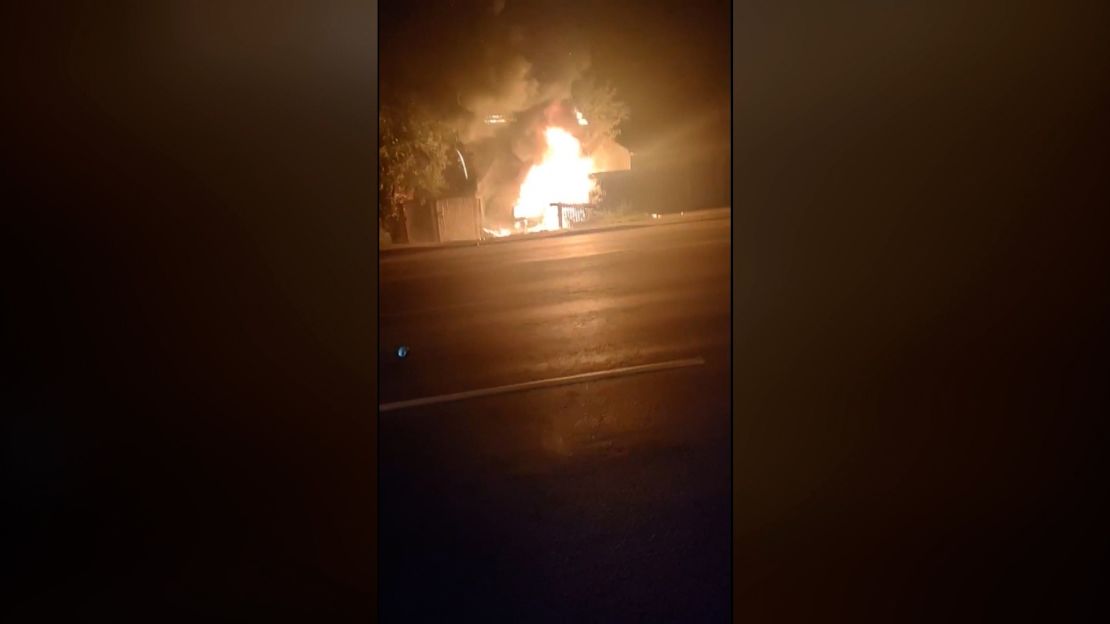
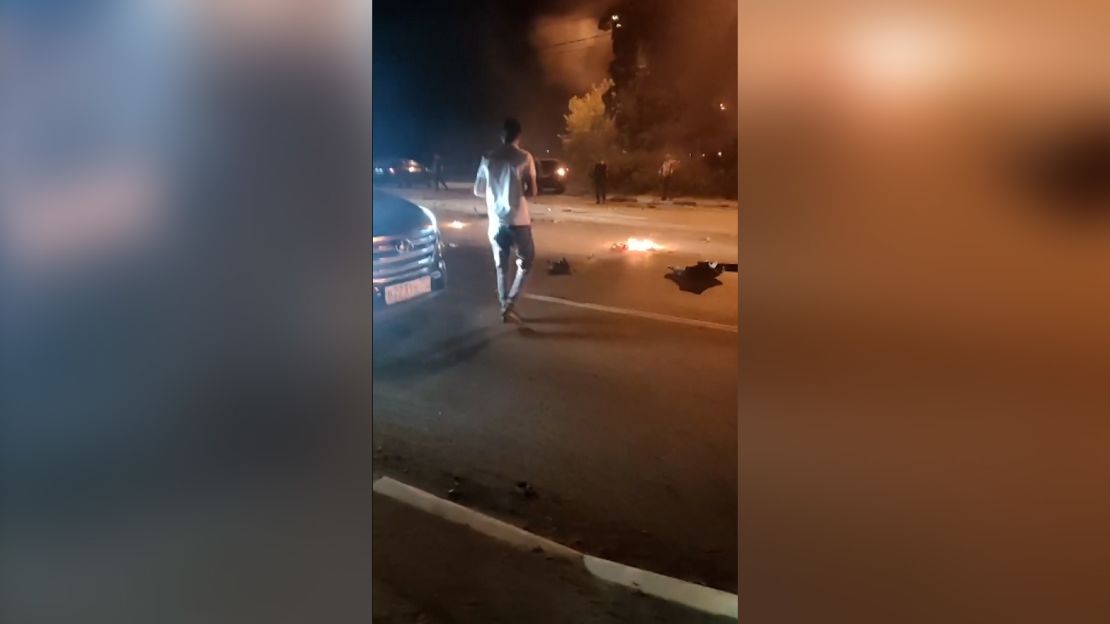
“If the Ukrainian trace is confirmed… then we should talk about the policy of state terrorism implemented by the Kyiv regime,” Russian Foreign Ministry spokeswoman Maria Zakharova said in a Telegram post. “There have been plenty of facts accumulated over the years: from political calls for violence to the leadership and participation of Ukrainian state structures in crimes,” she said.
Ukraine on Sunday strenuously denied any involvement in the car explosion. “Ukraine definitely has nothing to do with this because we are not a criminal state, which the Russian Federation is, and even more so, we are not a terrorist state,” Mykhailo Podoliak, adviser to the Head of the Office of the President of Ukraine, said in a Ukrainian TV interview.
‘Flames completely engulfed it’
When Dugina “turned onto the Mozhaiskoye highway near the village of Bolshiye Vyazemi, there was an explosion, the car caught fire immediately,” Krasnov told TASS.
“The flames completely engulfed it. She lost control because she was driving at high speed and flew to the opposite side of the road,” Krasnov added, as cited by TASS.
In the meantime, forensic experts, investigators and experts in explosive engineering are inspecting the scene.
Moments before her death, Dugina had attended a political festival organized by the Eurasian Youth Union. The group, which her father played a prominent role in, has recruited people with military experience to fight on behalf of the self-proclaimed Donetsk People’s Republic since 2014.
The organizers of the festival have urged participants to keep video recordings taken during the event, telling Russian state news agency RIA Novosti that surveillance cameras at the venue were not working.
Dugina, the daughter,was born in 1992 and studied Philosophy at Moscow State University, according to TASS.
In March 2022, the US Department of the Treasury’s Office of Foreign Assets Control (OFAC) sanctioned Dugina for her contribution to an article on the United World International (UWI) website suggesting that Ukraine would “perish” if it is admitted to NATO. Dugina was UWI’s chief editor.
She claimed in a recent interview with the Russian news channel, 1RNK, that the atrocities that happened during the Russian occupation of the Ukrainian town of Bucha were American propaganda, chosen because of its phonological similarity to “butcher,” a word she connects with US President Joe Biden calling Putin a “butcher” on March 29.
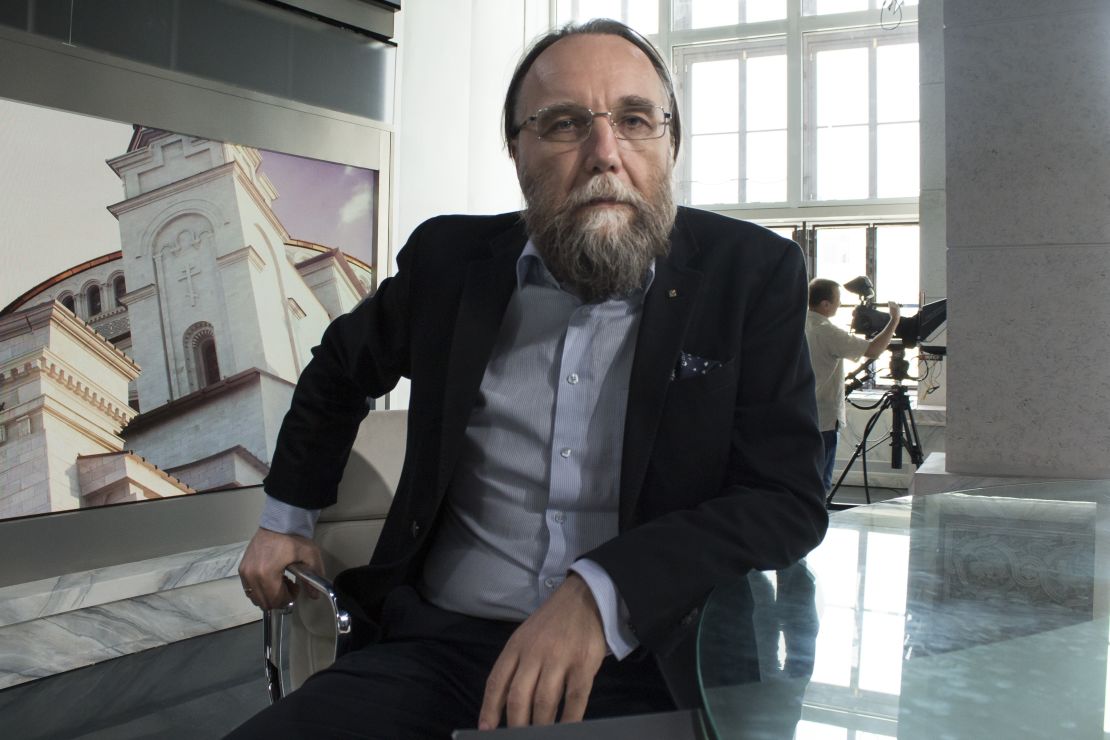
CNN visited the scene of mass graves in Bucha in April after Russian forces had withdrawn, revealing the horrors of their occupation to the world. Images of bodies lying strewn on the streets of Bucha sparked international condemnation and investigations into potential Russian war crimes. Multiple eyewitnesses and footage have connected many of the atrocities to Russian soldiers.
Her father was sanctioned by the United States in 2015 for being responsible for, or complicit in actions or policies that threaten peace, security, stability, or sovereignty or territorial integrity of Ukraine.
In an interview with CNN in 2017, Dugin remarked on many similarities between his ideas and those of former US president Donald Trump. He called Trump’s inauguration speech discourse “as if I would write it myself.”
He also said that Putin provided inspiration for Trump, “a kind of … example to challenge the status quo, to challenge the conventional wisdom, challenge all this totalitarian principles of globalists and ultra-liberals.”
Following Dugina’s death, a number of Russian media personalities demanded strikes against “decision-making” centers in Ukraine, including in the capital Kyiv.
Margarita Simonyan, editor in chief of the Kremlin-backed TV network RT, said on her Telegram channel that the targets in Ukraine should be, “Decision Centers! Decision Centers!! Decision Centers!!!”
Another television personality in Moscow, Tigran Keosayan, said on his Telegram channel that he was “tired of all the talking,” adding: “I don’t understand why there are still buildings on Bankova Street in Kyiv.”
CNN’s Alex Stambaugh, Tim Lister and Uliana Pavlova contributed to this report.



